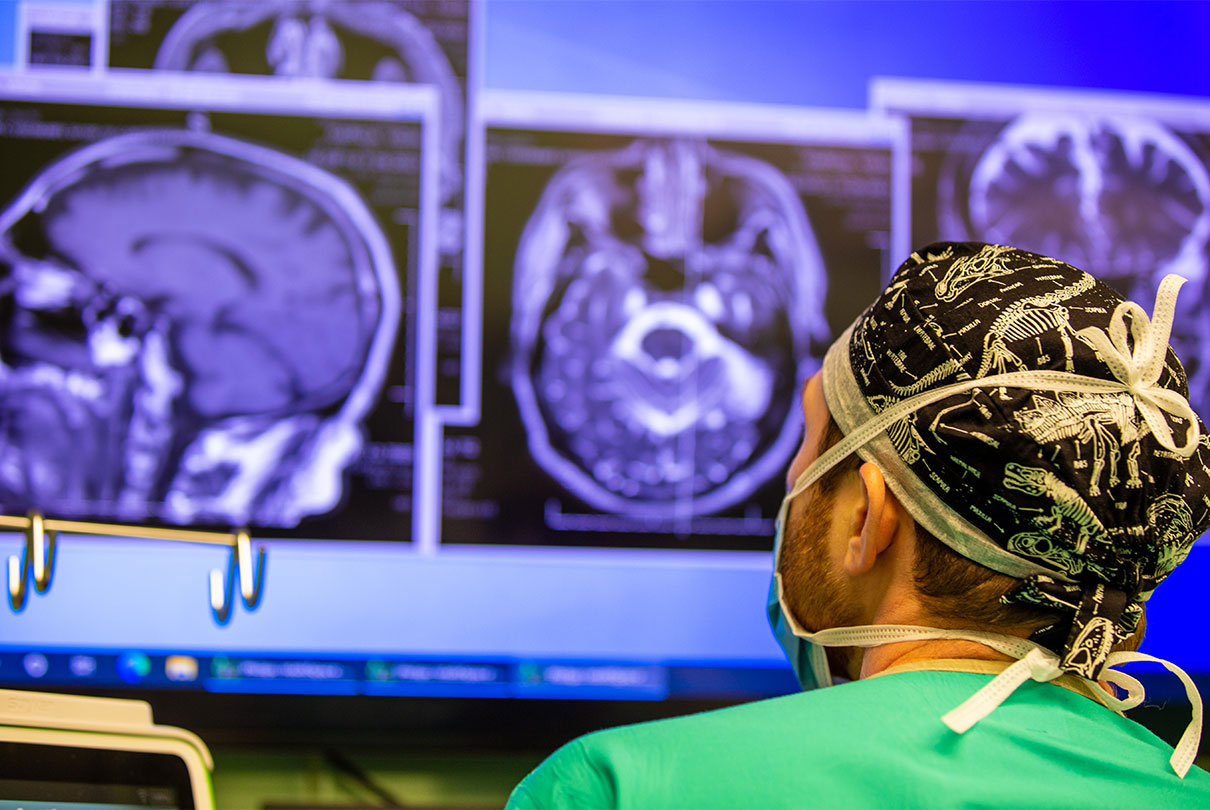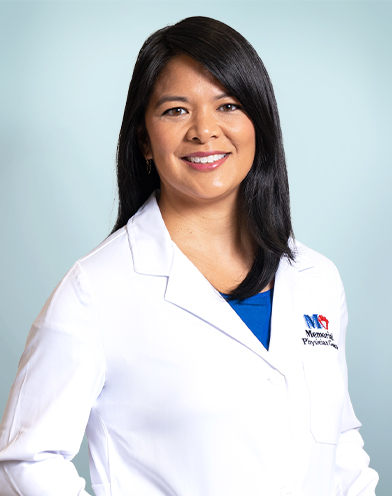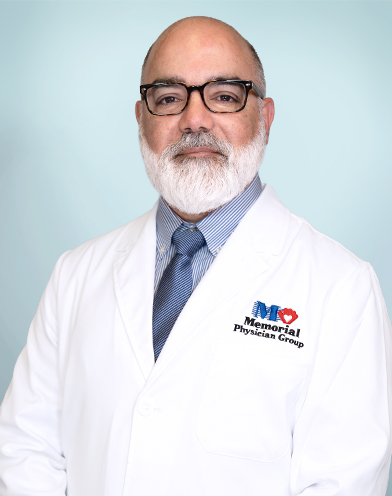Concussions and Traumatic Brain Injuries
Our neurologists partner with specialists across Memorial to deliver personalized brain injury care.
What is a Traumatic Brain Injury?
Traumatic brain injuries (TBIs) are physical injuries to the brain. There are two main TBI categories:
Mild TBIs
A mild TBI, also called a concussion, occurs when a blow to the head or body causes your brain to move inside your skull. While many people recover fully, concussions can be serious. Among adults who seek hospital care, about half have lingering symptoms six months after their injury.
Having multiple concussions also increases your risk of long-term problems such as chronic traumatic encephalopathy (CTE). CTE is a progressive neurological disorder that causes mood and behavior changes, memory problems and loss of coordination. Over time, CTE can lead to dementia.
Moderate and Severe TBIs
Moderate and severe TBIs are sudden and intense injuries from blunt force trauma or something that penetrates the skull. Falls, gunshots, motor vehicle accidents and assaults are common causes.
Moderate and severe TBIs often inflict permanent damage in the brain and cause lifelong disability. They may also increase the risk of:
- Alzheimer’s disease
- Anxiety and depression
- Chronic traumatic encephalopathy (CTE)
- Movement disorders
- Seizures
Moderate and Severe TBI Symptoms
Moderate and severe TBIs typically cause a loss of consciousness, confusion and temporary memory loss. They can also affect nearly anything your brain controls.
TBIs range from mild concussions to severe injuries. From skilled assessments and first-class emergency care to rehabilitation therapies, we take a comprehensive approach to TBIs.
What is a Concussion?
A concussion is a type of traumatic brain injury (TBI) that occurs when there is a jolting or strong impact to the head or body causing the brain to shake inside the skull. The concussion is a loss of brain function, that is usually short-term.
Concussion Prevention
Not all concussions are preventable, but lowering your risk of falls can help. Tips to decrease your fall risk include:
- Ask your doctor to review your medications that may cause dizziness.
- Exercise to improve your balance and strength.
- Have your vision checked.
- Make your home safe. Remove trip hazards, install handrails and grab bars, and ensure you have enough light to see your way around.
- Wear shoes that fit and have good support.
Sports safety is also important. Sports-related concussions are more common in children. But anyone involved in a contact sport should know concussion basics:
- Wear a proper and well-fitting helmet and avoid hits to the head.
- Know the signs of concussions and when to seek care.
- Stop playing immediately if you suspect a concussion.
Concussion Symptoms
Concussion symptoms vary widely and can be physical, mental or emotional. Some show up instantly, while others may not appear until days after the injury. Sometimes, you may not even recognize you have a concussion.
Common symptoms include:
- Balance problems and dizziness
- Changes in sleep (sleeping less or more than usual) and trouble sleeping
- Difficulty thinking clearly and remembering
- Emotional changes, including anxiety, irritability and sadness
- Fatigue
- Headaches
- Short-term memory loss
- Nausea and vomiting
- Sensitivity to light and noise
- Vision changes
When to Seek Medical Care
Call your primary care provider if your symptoms do not improve within a few weeks or if they worsen. They can determine if you need to see a neurologist.

When to Call 911
If a concussion causes a loss of consciousness, it’s critical to call 911 or get to an emergency room right away. Other signs you should seek immediate care include:
- Confusion, restlessness or distress
- Repeated vomiting
- Seizures
- Severe headache that doesn’t go away
- Sleepiness or inability to wake up
- Slurred speech
- Weakness, numbness or clumsiness
Diagnosing Concussions and TBIs
Our neurologists diagnose concussions by reviewing your symptoms and the event that caused the injury. They also perform a neurological exam, which looks at:
- Involuntary processes, such as breathing, heart rate and digestion
- Muscle reflexes, balance and coordination
- Senses, such as touch, hearing, smell and vision
- Thinking and memory
In an emergency setting, doctors evaluate head injuries using standard criteria, including:
- How long you were unconscious or showed signs of confusion
- Whether you can speak, move or open your eyes
Imaging tests, such as CT and MRI scans, are not usually needed to diagnose concussions. But they can help identify complications of moderate and severe TBIs, such as:
- Bleeding
- Bruising
- Swelling
- Skull fractures
Treating Concussions
Recovering from a concussion takes time. Rest is essential during the first few days. Sleep in a dark room and limit screens and loud noises. Over-the-counter pain relievers can help with headaches.
After one to two days, you can slowly resume regular activities. Let your doctor know if your symptoms get worse with increased activity.


Treating Moderate and Severe TBIs
Moderate and severe TBIs require emergency care. Memorial Regional Hospital is a Level 1 Trauma Center (the highest level) and state-approved Comprehensive Brain and Spinal Cord Injury Program. We’re also home to a leading-edge neurocritical intensive care unit (ICU). These designations mean we can treat the most complex and severe brain injuries.
Emergency care typically focuses on maintaining oxygen flow to the brain and controlling blood pressure. In some cases, patients require neurosurgery to:
- Relieve swelling
- Remove damaged tissue
- Repair fractures
- Treat ruptured blood vessels
After you heal from the initial injury, treatment shifts to helping you regain lost function and manage ongoing symptoms. Your neurologist will develop a treatment plan for you, which may include:
Our neurologists prescribe a variety of medications to relieve TBI symptoms, such as headaches or seizures.
Though damaged areas of the brain may not work the way they did before your injury, your brain has other ways of healing. Rehabilitation therapies can help you form new networks to recover some of the abilities you lost.
At Memorial Rehabilitation Institute, you’ll find world-class brain injury rehabilitation. Our therapists provide a comprehensive array of therapies, such as:
- Animal-assisted therapy
- Music therapy
- Occupational therapy
- Physical therapy
- Recreational therapy
- Speech therapy
Neuropsychological testing involves specialized assessments that help us identify and track changes in how your brain functions over time. Testing can also help guide our selection of other treatments.
Anxiety and depression are common symptoms of TBIs. Our psychologists and psychiatrists in Outpatient Behavioral Health provide care for mental health issues. Your team can also connect you with other resources, such as education programs and support groups, to help you and your family cope.
Concussions and Traumatic Brain Injuries: Why Choose Memorial Neuroscience Institute?
When a brain injury occurs, patients and families often have concerns about what the future looks like. At Memorial Neuroscience Institute, we work hard to provide answers. When you come to us for care, you’ll find:
- Skilled specialists: You receive care from fellowship-trained neurologists who have extensive experience evaluating and treating concussions and TBIs. Meet our providers.
- Personalized approach: Our neurologists coordinate with neuropsychologists, mental health professionals and neurorehabilitation specialists to provide the care you need.
- Compassion and support: Our teams are a trusted source of guidance and support for patients and families.
- Convenient visits: We offer telehealth visits when possible and care at offices in South Broward and Miami-Dade counties. With your entire team under one umbrella of care, you don’t have to go anywhere else to get the services you need. View our locations.









